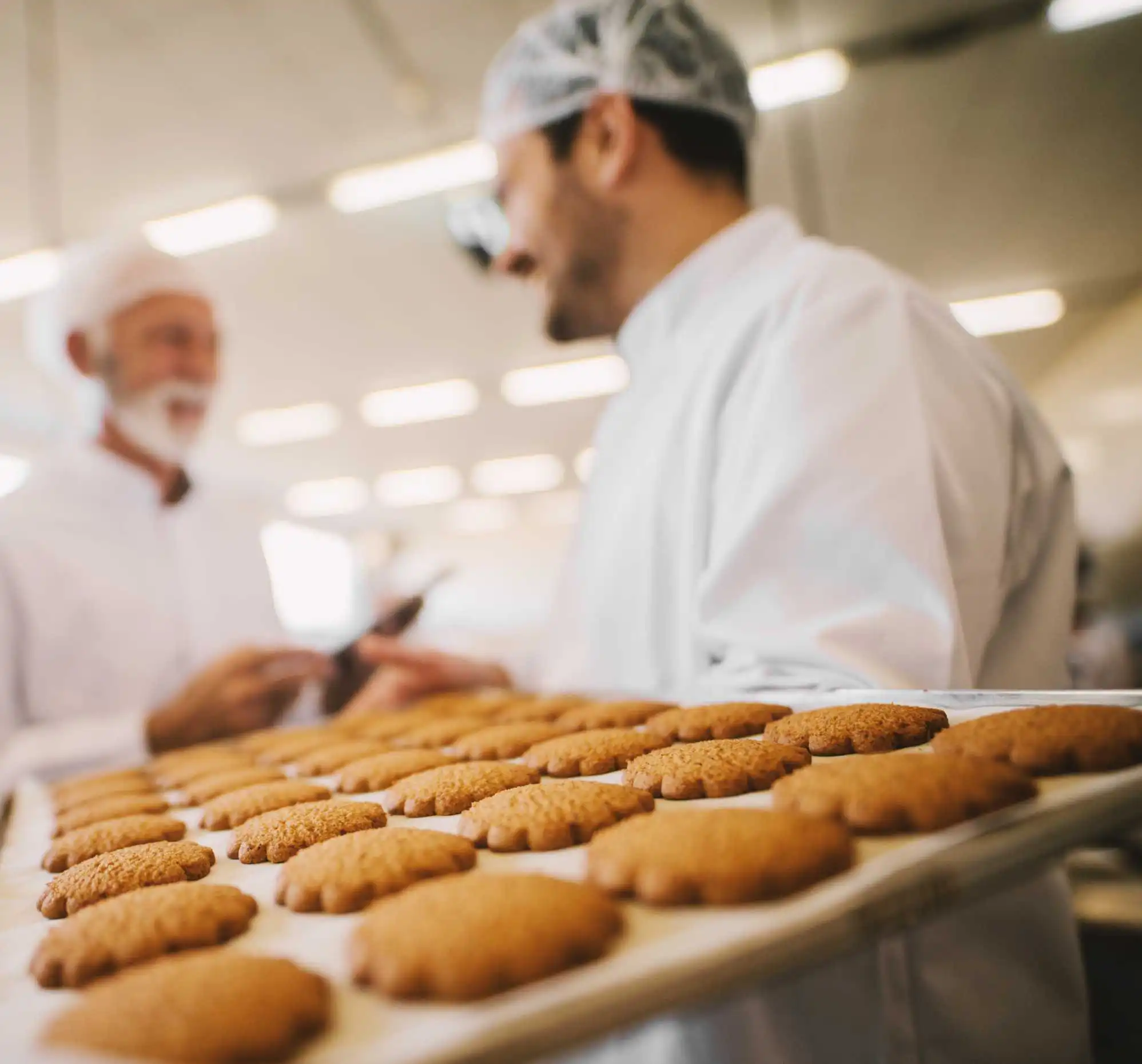In-Process Bakery Analysis: Why Mixolab 2 is the Perfect Tool to Reduce Waste
All industrial bakers, whatever the finished product, have the same objective: to satisfy their customers with the product they expect. More pragmatically, this also translates into consistent production and as little waste as possible.
Generally, an acceptable rate of waste (finished products, or in the course of production) should remain between 5-7%. But it still represents too much raw material loss, energy expenditure and man hours. But methods exist to help bakers identify production errors that can lead to reduced product waste, and it starts with the dough.
Dough properties change as it goes through the process
The behavior of dough is affected by many factors:
- The flour itself, whose components affect its rheological properties (gluten, fiber, enzyme, starch, additives): The importance of the incoming inspection to check that these properties are suitable for production cannot be overemphasized.
- The formulation: Salt, yeast, sugar, and other ingredients of the recipe will impact the behavior of the dough.
- The process itself: The dough will be mixed, trimmed, divided, sometimes shaped, it will be submitted to fermentation and it will be baked. Any change in the production process will directly affect the quality of the finished product. Fermentation time can change, or the temperature of the oven, or the outside temperature during kneading, and the machine settings can all affect dough behavior, and quality of the finished product.
With so many factors, how can we understand how it works?
Understanding and controlling dough properties throughout the baking process is key to maintaining consistent product quality

The purpose of in-process sampling of dough is to identify whether it is suitable for production. When done manually, this test is often limited to the visual aspect of the dough and its consistency. This measurement, performed by one person, is highly subjective and dependent on the operator. In addition, the operator is not able to anticipate the behavior of the dough when subjected to various constraints like temperature, pH, interactions between ingredients, etc. And what happens when the staff leaves for the day, or worse, the organization?
On the contrary, equipment such as the Mixolab 2 will provide objective data on the future behavior of the dough and its rheological qualities. This requires a very simple procedure:
- First, fix the specifications for your final product, such as size, color, etc.: What is the definition of a good finished product for you (in terms of volume, size, crumb, etc.)?
- Second, run the Mixolab 2 analysis at different points of the process (specific to each type of bakery product). What are the characteristics of your dough during the process, what does the data show when you have a good or high-quality production (or a bad production)?
- Finally, define the right flour that will work well for your process and consistently output a good product.
These results can then be transformed into troubleshooting guidelines. On the next production runs, at each sampling, the baker can immediately tell if the dough is suitable, and if not, corrective actions can be taken to solve this problem and avoid putting all or part of production in the trash.
Mixolab 2 is a Process Optimization and Quality Control Tool

Mixolab 2 is an ally to help bakers understand, anticipate, and adjust their processes. Mixolab 2 will not replace the operator, but it will bring objectivity and science, and help in the decision-making process. When quality issues arise, Mixolab 2 is a quick way to measure dough from key baking steps to identify the root cause of problems from either:
- Flour quality issues (blends, using enzymes & ingredients)
- Dough quality issues (process, hydration, ingredients, etc.)
Mixolab 2 can be positioned in the production line for product analysis of the dough at the beginning of the bakery process. In line, the first sampling can be done after kneading, after resting, division, proofing, etc.:

Examples where Mixolab 2 has solved customer issues
Every baker’s production process is unique, which is why there is not always a one-solution-fits-all approach when addressing quality challenges. Mixolab 2 can help bakers find their solutions by providing data that they can adapt to their process. Here are a few recent examples:
Ensuring product consistency across all production lines of a pizza crust factory

- Challenge: To support increased demands, this customer decided to install a second production line on the same production site. The product is the same, and neither the recipe nor their process has changed. Nevertheless, with the new production line, their waste rate rose to 25% (at times it was 40%!) without any visible reason. It was absolutely necessary to reduce the waste, return to a controlled production, and improve profitability.
- Solution: The study with Mixolab 2 allowed the customer to identify at which moment of the process the dough was not suitable anymore. Mixolab 2 results showed that the dough consistencies differed between the lines after mixing, though the recipe and the ingredients were the same. Looking deeper, the mixers were different, thus causing significant variations in the dough consistency between the lines.
- Mixolab 2 provided all the objective data that led to this conclusion. With Mixolab 2, our customer could make quick production adjustments on mixing time, speed, etc. of the new line to match their other line. The two production lines now provide products of the same quality.
Improve dough consistency in the production of cookies

- Challenge: The cookie producer routinely struggled with the quality of finished products from one day to the next: thickness; color, etc. Production required better control to significantly reduce costs and waste.
- Solution: First the specifications for thickness for a good final product were fixed (defined). Then, the doughs that made good cookies were analyzed with Mixolab 2. And finally, quality indicators were defined based on Mixolab 2 results.
- Through their Mixolab 2 analysis, the team found that the cookie was generally good (within specifications) when their dough was within a specific consistency threshold. Through this at-line application, our customer was able to anticipate final product consistency issues before they occurred. Now, they simply take a dough sample from each production run and use the Mixolab2 to check if the dough consistency falls within target specifications.
Assess dough behavior and adapt its use
- Challenge: Each day, this dough producer sends fresh pizza dough to franchisees throughout the region. The dough must be used within 5 days. However, as many of their franchisees agreed, when the dough is used on day 1, the dough is tough and does not spread well, resulting in a smaller pizza. Then, on day 5, it expands too much. As a result, the best day to use the dough is day 3.
- Solution: Mixolab 2 confirmed that there were differences in terms of dough stiffness between the doughs after 1, 3 and 5 days. The stiffness was greater after 1 day of storage and then gradually decreased over time.
- To overcome the issues encountered after day 1, it was recommended to extend the rising time after taking the dough out of the fridge (3h instead of 2h). This gave a longer time for the yeast to make the dough more extensible). For day 5, it was recommended to shorten the rising time to avoid over-proofing.
Assess dough quality everywhere it matters in your process
From the moment dough leaves the mixer to the moment it enters the oven, bakers have several opportunities to assess dough quality to ensure product consistency and reduce waste. In a short analysis time and using only a small sample, Mixolab 2 offers the flexibility to simulate your baking process to make data-driven decisions before problems can arise. Interested in learning more about Mixolab 2 for in-process dough analysis?
Contact us today to discuss a solution for your bakery!















